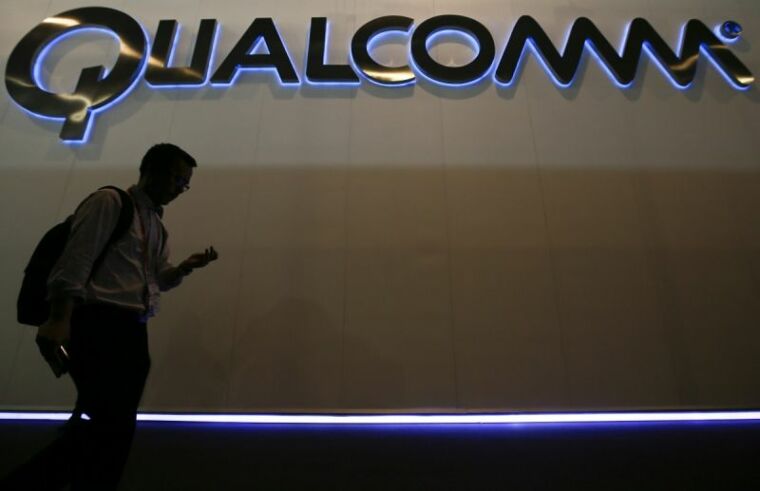Qualcomm 10nm server processor release date news 2016: Launch catches Intel off guard
Qualcomm's release of the "world's first" 10nm server processor has just put the company at the center of what is considered to be an Intel-run market of PCs and data centers.

The American telecommunications equipment company, which previously focuses on the mobile market, has now branched out on Intel's home turf making it an interesting time for both companies. Being the first in the Centriq release from the lineup that Qualcomm is said to be quietly working on for the past four years, the Centriq 2400 processors are 10nm server processors with 48 cores built on Qualcomm's own custom central processing unit (CPU) architecture.
"The Qualcomm Centriq 2400 series processors will drive high performance, power-efficient ARM-based servers from concept to reality," senior vice president and general manager of Qualcomm Datacenter Technologies, Anand Chandrasekher said, as quoted by The Inquirer. "We are first in 10nm IC technology for mobile, and leveraging our expertise in ARM processors and system on chip design, we are the first with our Qualcomm Centriq family of server processors to bring the leading edge to the data centre."
Intel's own take on such 10 nm chips is supposedly still in deep development with no word about its release as of yet. Rumor has it that Intel's incantation is not going to see the light of day until late 2017, which gives Qualcomm roughly a year to push through with Centriq 2400 and build a reputation for itself.
What is more fascinating is that for years Intel has tried to break through the mobile market, Qualcomm's territory, in which the latter had boomed with a speedy turnaround for smartphones and other devices. Unfortunately, Intel's efforts have been futile with the pull out of the Atom chipset earlier this year, which was tipped to be the main chip for the highly mysterious Microsoft Surface Phones.
Forbes surmises that Intel's reaction to this move by Qualcomm will be highly impactful in terms of how the chip-making market will shape up moving forward. Whatever the former decides to do given the situation — whether that is to ramp up their 10 nm chips or follow through with their schedule, it is "important for [Intel] to respond accordingly if competitors like Qualcomm can enough traction to become a real threat."
 Christians don't have to affirm transgenderism, but they can’t express that view at work: tribunal
Christians don't have to affirm transgenderism, but they can’t express that view at work: tribunal Archaeology discovery: Medieval Christian prayer beads found on Holy Island
Archaeology discovery: Medieval Christian prayer beads found on Holy Island Presbyterian Church in America votes to leave National Association of Evangelicals
Presbyterian Church in America votes to leave National Association of Evangelicals Over 50 killed in 'vile and satanic' attack at Nigerian church on Pentecost Sunday
Over 50 killed in 'vile and satanic' attack at Nigerian church on Pentecost Sunday Ukrainian Orthodox Church severs ties with Moscow over Patriarch Kirill's support for Putin's war
Ukrainian Orthodox Church severs ties with Moscow over Patriarch Kirill's support for Putin's war Islamic State kills 20 Nigerian Christians as revenge for US airstrike
Islamic State kills 20 Nigerian Christians as revenge for US airstrike Man who served 33 years in prison for murder leads inmates to Christ
Man who served 33 years in prison for murder leads inmates to Christ


 Nigerian student beaten to death, body burned over ‘blasphemous’ WhatsApp message
Nigerian student beaten to death, body burned over ‘blasphemous’ WhatsApp message 'A new low': World reacts after Hong Kong arrests 90-year-old Cardinal Joseph Zen
'A new low': World reacts after Hong Kong arrests 90-year-old Cardinal Joseph Zen Iran sentences Christian man to 10 years in prison for hosting house church worship gathering
Iran sentences Christian man to 10 years in prison for hosting house church worship gathering French Guyana: Pastor shot dead, church set on fire after meeting delegation of Evangelicals
French Guyana: Pastor shot dead, church set on fire after meeting delegation of Evangelicals ‘Talking Jesus’ report finds only 6% of UK adults identify as practicing Christians
‘Talking Jesus’ report finds only 6% of UK adults identify as practicing Christians Mission Eurasia ministry center blown up in Ukraine, hundreds of Bibles destroyed: 'God will provide'
Mission Eurasia ministry center blown up in Ukraine, hundreds of Bibles destroyed: 'God will provide' Church holds service for first time after ISIS desecrated it 8 years ago
Church holds service for first time after ISIS desecrated it 8 years ago Burger King apologizes for 'offensive campaign' using Jesus' words at the Last Supper
Burger King apologizes for 'offensive campaign' using Jesus' words at the Last Supper Uganda: Muslims abduct teacher, burn him inside mosque for praying in Christ’s name
Uganda: Muslims abduct teacher, burn him inside mosque for praying in Christ’s name